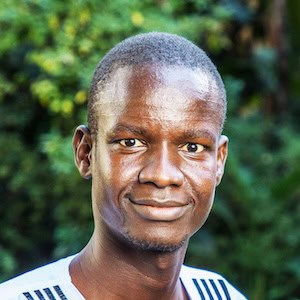-
Teaching the Poor to be Better Customers: Marketplace literacy is the missing piece in the poverty fight
The knowledge gap results in lost wages and limited opportunity for poor people to lift themselves out of poverty. The answer, argues Business Professor Madhu Viswanathan, is marketplace literacy efforts that help the poor evaluate opportunity costs (money, time and effort) of buying a product or service. He reflects on the Marketplace Literacy Project, which he founded more than 10 years ago.
- Categories
- Uncategorized
-
Choice Exists, Even in Slums: How a Yelp-like model can benefit low-income communities
The founder and CEO of TulaLens says a recent pilot project shows that choice exists in urban low-income settings, and crowdsourcing information can potentially be a powerful tool in these communities. The next issue for TulaLens is how to expand its reach.
- Categories
- Health Care, Technology
-
Magnetizing Entrepreneurs, Investors and Mentors: The Inclusive Business Accelerator aspires to be a hub for dealmaking (and much more)
Earlier this month, a new online magnet to attract entrepreneurs, investors and would-be mentors focused on base of the pyramid enterprises and opportunities began in earnest. The Inclusive Business Accelerator (IBA), created through a partnership a between the BoP Innovation Center (BoPInc), SNV and VC4Africa, opened for business - the business being that of connecting the startups with the money and the know-how that they need to be successful.
- Categories
- Uncategorized
-
Credit for the People, by the People: Three pathways to smarter financial inclusion
With the digitization of finance, lenders now have an unforgiving memory of poor people´s formal debt repayments, while knowing little else of any real significance about them. According to Ignacio Mas and David Porteous, this can become the basis for financial exclusion, denying even responsible borrowers access to credit. They propose some alternative pathways to financial inclusion in a new paper.
- Categories
- Uncategorized
-
CHAI as a Disruptive Market Force (Part 2): Despite successes, challenges remain in getting health commodities to those who most need them
A focused market-shaping approach remains a relatively young and rapidly evolving dimension of global health, but CHAI and its partners have demonstrated that market shaping can be used to impact outcomes and achieve significant savings for governments and donors.
- Categories
- Health Care
- Tags
- supply chains
-
Farm Shop Cultivates Growth : In this video Q&A Farm Shop Co-Founder Madison Ayer explains the microfranchise model to supply, educate farmers
Farm Shop hopes to take the idea of the micro-franchise to another level – the ground level to be precise. Founded by Madison Ayer and Farouk Jiwa, Farm Shop is a Kenya-based social enterprise aspiring to grow into a rural network of agri-suppliers. With 25 stores in operation, proprietors supply smallholder farmers with a wide set of offerings - from basic fertilizers to more advanced hybrid seeds and drip irrigation systems.
- Categories
- Agriculture
-
CHAI as a Disruptive Market Force (Part 1): Ensuring access means more than getting the right drugs to the right people at the right time
By actively engaging stakeholders on the supply and demand sides of the market, The Clinton Health Access Initiative helps overcome access challenges and gets health care commodities to the people who need them the most, write CHAI leaders David Ripin and Danielle Kuczynski. But what does ‘market shaping’ do to help those most in need?
- Categories
- Health Care
- Tags
- supply chains
-
Twitter Top Ten 1-11-15
We returned from the holidays last week, and so did many of you - at least if Twitter is any indicator. Not that Twitter ever sleeps, but it can sometimes seem like it takes a nap or two during the holiday period.
- Categories
- Uncategorized










